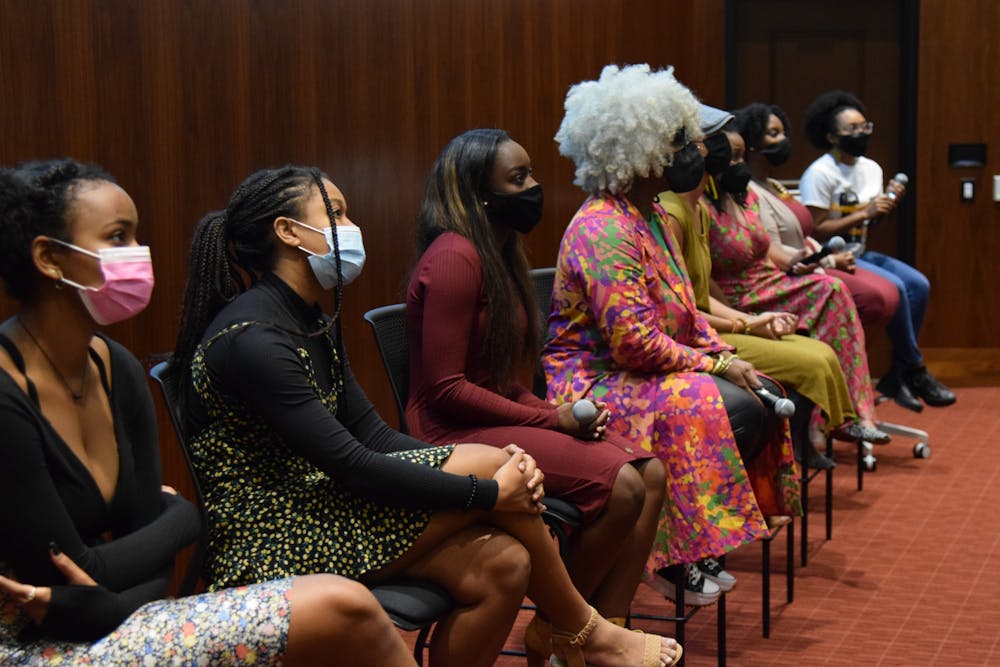Dance is a form of expression that provides cultural connections through nonverbal communication. When words fall short, the language of body movement can be a powerful way to explore hard topics and spark important conversations.
Elon University Assistant Professor of Dance Keisha Wall, along with Associate Professor of Public Health Studies Stephanie Baker, wanted to bring attention to the Black maternal health crisis and agreed dance would be the best way to make an impact on a large audience.
Their collaborative work, a short dance documentary titled “Reclaiming Power: The Black Maternal Health Crisis”, screened in Turner Theater in early October, presenting the experiences that “Black birthing people” have in the current healthcare system.
“These are all people that we can relate to, particularly there are faculty members in the film, and I think most people wouldn't even really know, even students wouldn’t know, that the person teaching them every day has actually had this experience,” Wall said.
When imagining how to illustrate the birthing process, senior Queen Assata Stephens, who assisted in the research, decided to relate the stages of pregnancy, labor and postpartum as different settings: water, a birthing center and a field, respectively, to create what she called a “unifying aspect.”
According to the Center for Disease Control, Black women are three to four times more likely to die in childbirth than their white counterparts, and according to Baker, this has to do with racism in the healthcare system. She believes it is important for people at Elon University to see this film and understand problems that others in the community are facing.
Baker hopes after watching the film, people will feel empowered by the knowledge that there are alternative birthing options.
“I hope that they walk away knowing that, as we struggle towards trying to get to a place of racial equity and racial justice, that communities that have been denied and excluded and oppressed do have power within them,” Baker said. “We can choose to operate off of that path of that power and find alternative ways to having the experiences that we deserve.”
After the screening in Turner Theater, a Q&A panel took place where the dance documentary team spoke about the fight for reproductive justice. In the Q&A, panelists elaborated on how some insurance policies and local laws currently present a challenge for low income birthing people to have access to midwives and doulas.
The documentary team said one of the next hopes for the film is for a screening with younger audiences, potentially middle school health classes, to start educating students about professions and birthing options outside of a gynecologist.
Baker spoke to the importance of self confidence, as well as having confidence in those around you at this stage of your life and how education on this topic needs to start early and continue to be reiterated.
Assata Stephens encouraged all who saw the film to further their education on the topic of the Black maternal health crisis.
“Knowledge acquired, but not applied, is best left alone,” Assata Stephens said.


